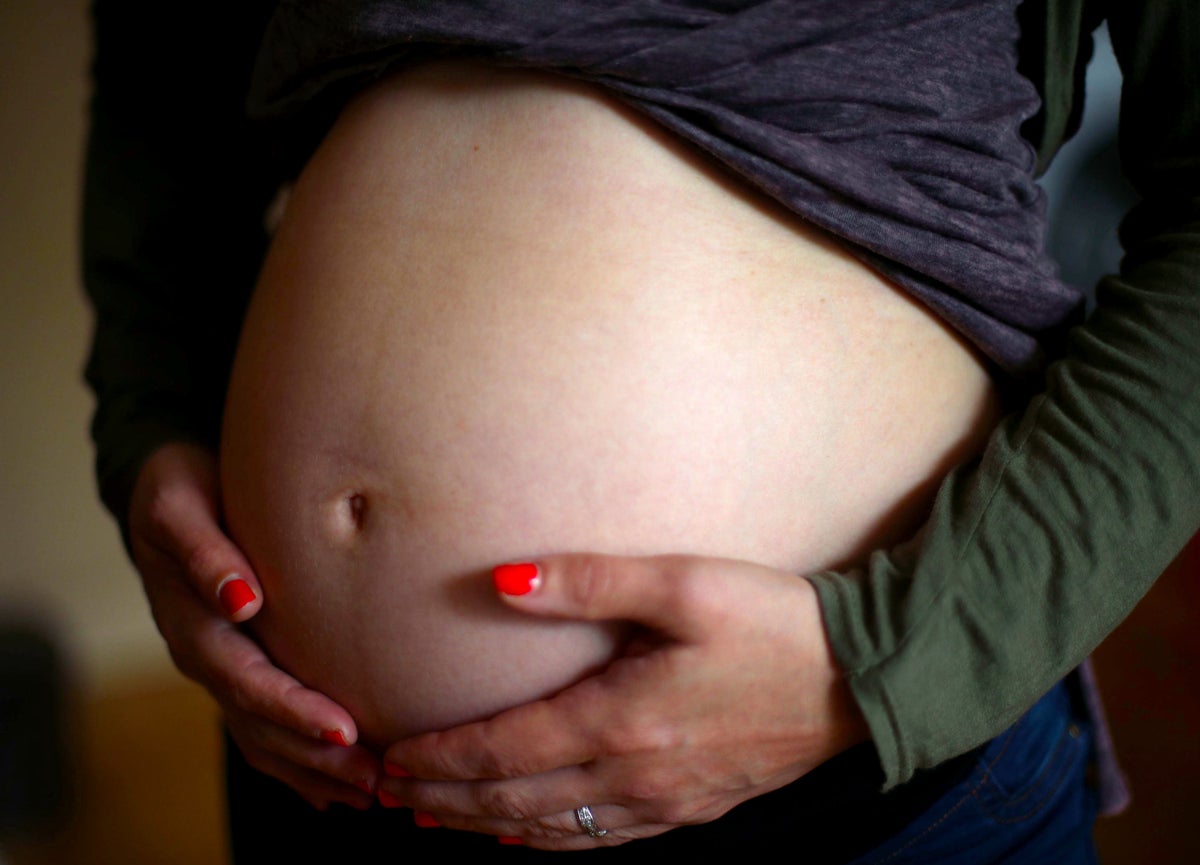
Death rates among pregnant women could stall due to increasing levels of obesity and people starting motherhood in later life, researchers have suggested.
A new study has identified the factors which put women at higher risk of severe illness during pregnancy including being an older mother, obesity and previous caesarean section.
And researchers suggested that increasing prevalence of these risk factors could have combined to stall decades of progress in reducing maternal mortality in the UK.
The new study examined maternal health outcomes in Scotland to assess who might be at higher risk of serious illness or complications – also known as maternal morbidity.
The increasing prevalence of these factors in UK mothers might stall historical reductions in maternal mortality— University of Edinburgh researchers
Researchers from the University of Edinburgh examined data on 762,918 pregnancies, of which 7,947 women had at least one “severe maternal morbidity event” noted on their records which included one of 17 illness diagnoses or whether women had been given certain interventions – such as being admitted to intensive care.
The authors found that severe maternal morbidity was recorded for about 10 in 1,000 (1%) pregnant women in Scotland.
Their study, published in the journal Anaesthesia, identified that women who were older were at higher risk of these severe events. For instance, those aged 35 to 39 had a 22% increased risk of severe illness compared to pregnant women aged 25 to 29.
Those aged over 40 had a 44% increased risk.
Other risk factors included obesity, twin pregnancy and whether or not women had a previous caesarean section delivery.
Researchers found that 41 women died during pregnancy or up to 42 days after delivery.
They said that women who had a severe morbidity were “more than 2,000 times more likely to die than women who did not”.
While the authors acknowledge that the number of women dying during pregnancy and childbirth in the UK is at an all-time low, and is low compared to international standards, they suggested that the increasing rates of older mothers and high levels of obesity could have contributed to a stalling in progress in this field.
“The increasing prevalence of these factors in UK mothers might stall historical reductions in maternal mortality and will increase the need for healthcare during pregnancy and childbirth,” they said.
They added: “The reality today is that the increasing complexity of health care needs of women during pregnancy means that they may need greater levels of care during pregnancy and delivery.
“The fact that maternal mortality has stalled, rather than increased, suggests maternity services are adapting to these many challenges.
“However, our study may allow us to develop better systems to identify women at risk of severe maternal morbidity, so that maternity services can provide more personalised care targeted to those at higher risk.”
Commenting on the study, Birte Harlev-Lam, executive director at the Royal College of Midwives, said: “The skill and dedication of midwives, maternity support workers and their maternity colleagues are driving improvements in safety and care.
“There is still much to do to keep these efforts moving and in the right direction, but across the UK these are being hampered by Government underinvestment.
“England’s maternity services are struggling with a serious and longstanding midwifery shortage. Scotland, Wales, and Northern Ireland are also seeing a build-up of pressures on services and staff.
“All UK Governments must ensure that maternity services have the right numbers of staff, with the right training and in the right places to ensure all women get the personalised and tailored care they need and deserve.
“This includes specialist services and care for more vulnerable women and those with complex pregnancies.
“Midwives and their colleagues are doing this now, often against the odds. However, they know they can do even better but they need the resources and support to make this happen and doing this better could save women’s lives.”





